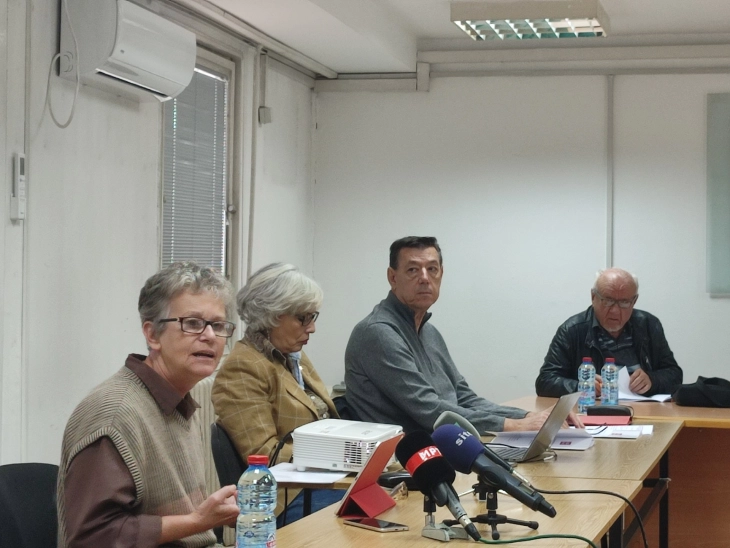Research: State spends thousands of euros on scholarships for students abroad who often don't return
- Around 67 percent of undergraduates and 48 percent of graduates who studied on a state scholarship at one of the top 100 universities according to the Shanghai Ranking did not return to North Macedonia even though they had agreed to come back to work in the country, according to research done by the NAkS Independent Academic Workers Union.

Skopje, 7 November 2023 (MIA) — Around 67 percent of undergraduates and 48 percent of graduates who studied on a state scholarship at one of the top 100 universities according to the Shanghai Ranking did not return to North Macedonia even though they had agreed to come back to work in the country, according to research done by the NAkS Independent Academic Workers Union.
The union, whose members are mostly university faculty professors, presented their findings on Tuesday.
They noted that the Ministry of Education and Science had no data on the scholarship recipients and their careers after graduation. Also, none had paid back ten times the amount given to them, the penalty for not returning to the country as stipulated in the scholarship competitions.
The scholarships for undergraduate studies cost the annual budget 40,000 euros and for graduate studies 36,000 euros, the researchers pointed out. They said the criteria for awarding the scholarships were vague and not based on the needs of the country's economy.
At the same time, they said, the Minister of Education and Science has a discretionary right in making decisions.
The researchers obtained the data on the scholarship recipients from social platforms such as LinkedIn. They found that out of 61 people who had received an undergraduate scholarship between the academic years 2013-14 and 2016-17, only 11 returned to the country, 41 remained abroad, and no data was available on the remaining nine recipients.
Of the 165 scholarships awarded for graduate studies between 2010-11 and 2021-22, 59 returned to the country.
Presenting the findings, Mimoza Ristova said the students mostly studied (and stayed) in Great Britain, the USA, in EU countries, but also in Switzerland and Israel.
She said 67 percent of the undergraduate scholarship recipients and 48 percent of the graduate scholarship recipients did not return even though they had an obligation to work in the country.
Mirjana Najchevska said these scholarships were not regulated by the Law on Higher Education and that the laws did not lay out any specific criteria for financing students abroad.
Asked whether any scholarship recipients had ever returned the money after not coming back to work in North Macedonia, the Ministry of Education and Science said there was not a single such case, Najchevska noted. "Those students have not worked a single day in this country," she pointed out.
The researchers said the scholarships for studies abroad started in 2010, at the same time when the state stopped financing master's and doctoral studies in the country and funding scientific research projects.
Five ministers of education had been asked to stop these scholarships and to redirect the funds to domestic science and research projects, but the ministers only agreed that the scholarship program was harmful, the researchers said.
The Ministry of Education and Science had recently announced another competition for ten of these scholarships, they added. mr/







